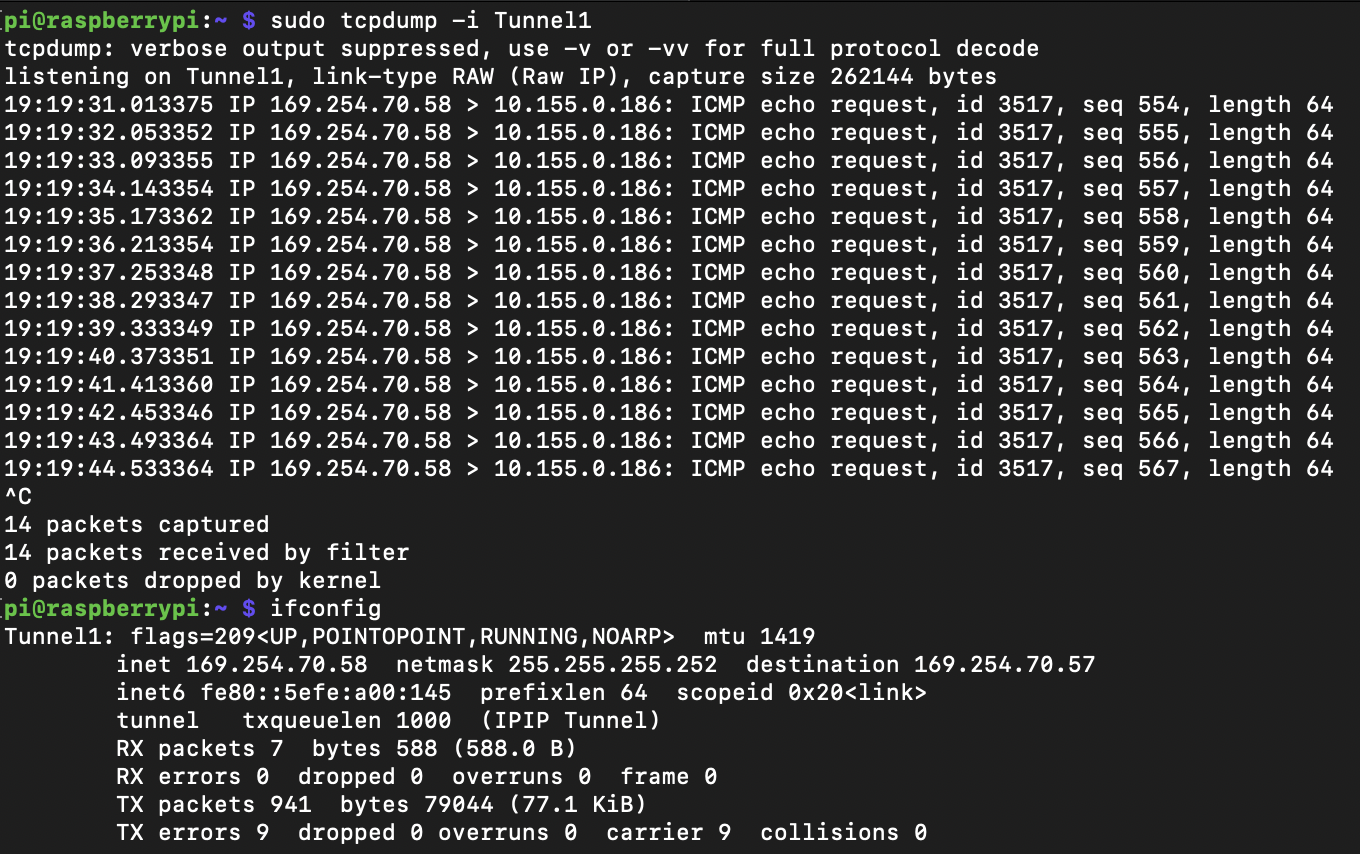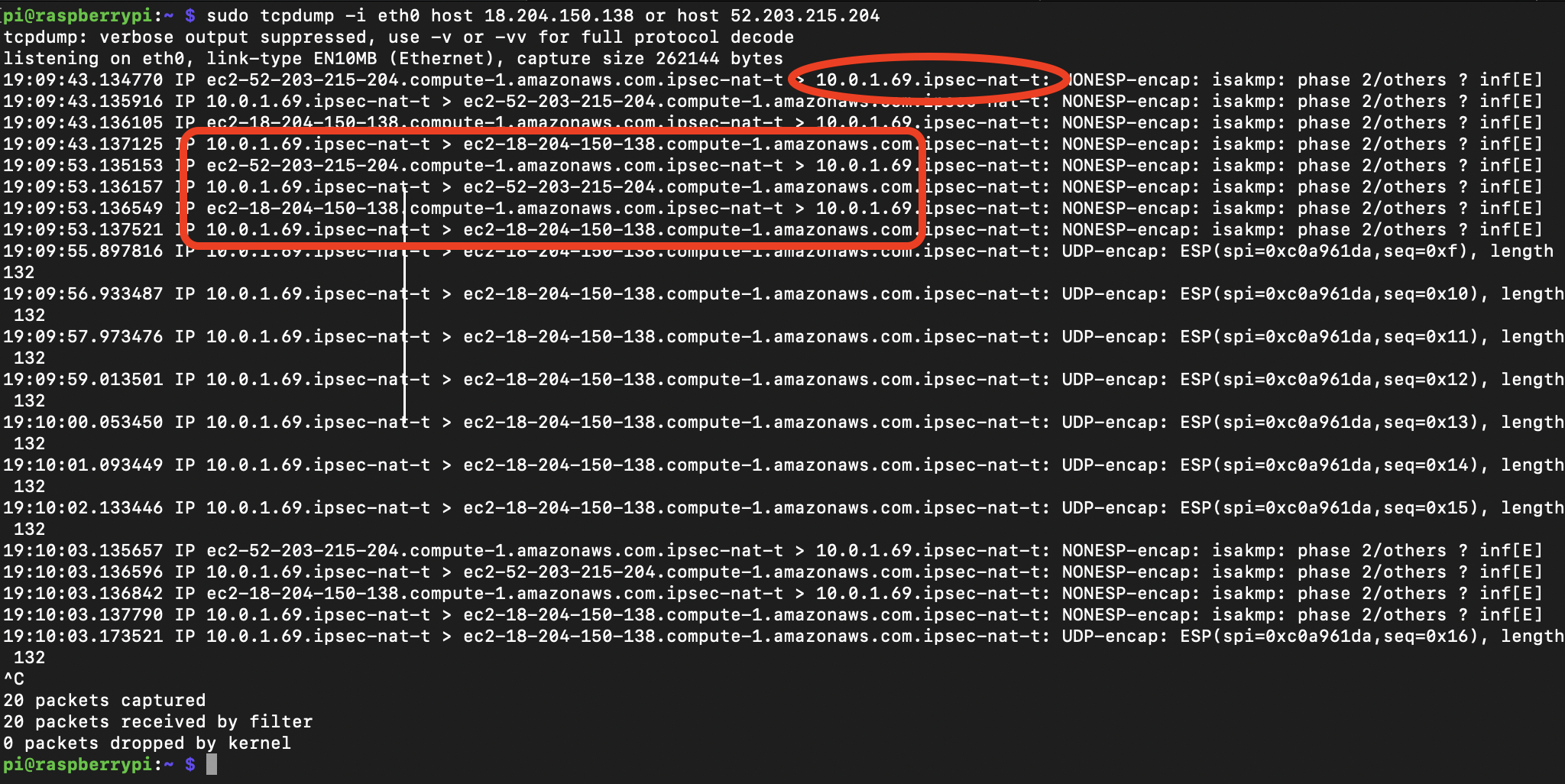Connecting remote IoT devices securely is a critical task for developers and IT professionals, especially when leveraging cloud platforms like AWS. If you're looking to securely connect your Raspberry Pi to an AWS VPC, this guide will walk you through the essential steps and provide free resources to help you get started.
In today's interconnected world, IoT devices are becoming increasingly prevalent, and ensuring their secure connection to cloud services is paramount. Whether you're setting up a smart home system, a remote monitoring solution, or any other IoT application, understanding how to integrate Raspberry Pi with AWS VPC securely is crucial for maintaining data integrity and system reliability.
This article aims to provide you with actionable insights and practical steps to securely connect your Raspberry Pi to AWS VPC. By the end of this guide, you'll have a clear understanding of the process and the tools you need to achieve a secure connection without unnecessary complications.
Read also:Goblin No Suana Manga A Comprehensive Guide To The Fantasy Adventure
Table of Contents
- Introduction
- Overview of IoT and Its Importance
- Understanding Raspberry Pi Basics
- What is AWS VPC?
- Steps to Securely Connect Remote IoT Devices
- Tools and Resources for Free Downloads
- Best Practices for Secure Connections
- Troubleshooting Common Issues
- Real-World Applications of Secure IoT Connections
- Conclusion and Next Steps
Introduction
IoT (Internet of Things) technology has transformed the way we interact with devices and systems. By connecting devices to the internet, we can automate processes, gather data, and make informed decisions. However, security remains a significant concern, especially when dealing with remote IoT devices.
One of the most popular platforms for IoT development is the Raspberry Pi. This versatile single-board computer can be used for a wide range of applications, from home automation to industrial monitoring. Pairing Raspberry Pi with AWS VPC (Virtual Private Cloud) allows developers to create secure and scalable IoT solutions.
Overview of IoT and Its Importance
IoT devices are transforming industries by enabling smarter, more connected systems. These devices collect and transmit data to cloud platforms for analysis and decision-making. However, the security of these devices is paramount, as they often handle sensitive information.
Why IoT Security Matters
- Protects sensitive data from unauthorized access.
- Ensures the reliability and integrity of IoT systems.
- Prevents potential cyberattacks that could disrupt operations.
According to a Gartner report, the number of IoT devices is expected to reach 25 billion by 2030. With such rapid growth, ensuring secure connections is more important than ever.
Understanding Raspberry Pi Basics
The Raspberry Pi is a compact and affordable single-board computer that has become a favorite among hobbyists and professionals alike. It is highly versatile and can be used for a variety of applications, including IoT development.
Key Features of Raspberry Pi
- Compact size and low power consumption.
- Supports multiple operating systems, including Raspbian and Ubuntu.
- Equipped with GPIO pins for interfacing with external devices.
Raspberry Pi models like the Pi 4 and Pi Zero W are particularly popular for IoT projects due to their Wi-Fi and Bluetooth capabilities.
Read also:Discovering Sone436 A Comprehensive Guide To Understanding Its Potential
What is AWS VPC?
AWS VPC (Virtual Private Cloud) is a service provided by Amazon Web Services that allows users to create a logically isolated section of the AWS Cloud. Within this virtual network, users can launch AWS resources, such as EC2 instances, in a secure and controlled environment.
Benefits of AWS VPC
- Enhanced security through network isolation.
- Customizable IP address ranges and subnets.
- Integration with other AWS services for seamless operations.
By using AWS VPC, developers can ensure that their IoT devices are connected securely and can communicate with other resources within the network.
Steps to Securely Connect Remote IoT Devices
Connecting a Raspberry Pi to AWS VPC securely involves several steps. Below is a detailed guide to help you achieve this:
Step 1: Set Up Your Raspberry Pi
Before connecting your Raspberry Pi to AWS VPC, ensure that it is properly set up. Install the latest version of Raspbian or any other compatible operating system. Update the system and install necessary packages:
sudo apt update && sudo apt upgrade
Step 2: Configure AWS VPC
Create a VPC in your AWS console. Define subnets, route tables, and security groups to ensure secure communication between your Raspberry Pi and other resources.
Step 3: Establish a Secure Connection
Use SSH (Secure Shell) or a VPN to establish a secure connection between your Raspberry Pi and AWS VPC. This ensures that all data transmitted between the devices is encrypted and protected from unauthorized access.
Tools and Resources for Free Downloads
Several tools and resources are available to help you securely connect your Raspberry Pi to AWS VPC. Below are some of the most useful ones:
1. AWS CLI
The AWS Command Line Interface (CLI) allows you to manage AWS resources from the command line. You can download it for free from the AWS CLI website.
2. OpenVPN
OpenVPN is a popular open-source VPN solution that can be used to secure connections between your Raspberry Pi and AWS VPC. You can download it from the OpenVPN website.
3. Raspberry Pi Imager
Raspberry Pi Imager is a tool that simplifies the process of installing operating systems on your Raspberry Pi. It is available for free from the Raspberry Pi website.
Best Practices for Secure Connections
Following best practices is essential for ensuring the security of your IoT devices. Below are some key recommendations:
1. Use Strong Passwords
Ensure that all devices and accounts have strong, unique passwords. Avoid using default passwords and regularly update them.
2. Enable Two-Factor Authentication
Two-factor authentication adds an extra layer of security by requiring users to provide two forms of identification before accessing a system.
3. Regularly Update Software
Keep all software and firmware up to date to protect against vulnerabilities and exploits.
Troubleshooting Common Issues
Even with careful planning, issues can arise when setting up secure connections. Below are some common problems and their solutions:
Problem: Unable to Connect to AWS VPC
Solution: Check your security group settings and ensure that the necessary ports are open. Verify that your Raspberry Pi's IP address is correctly configured.
Problem: Slow Data Transfer
Solution: Optimize your network settings and ensure that your Raspberry Pi is connected to a stable internet connection. Consider upgrading your hardware if necessary.
Real-World Applications of Secure IoT Connections
Securely connecting IoT devices has numerous real-world applications. Below are some examples:
1. Smart Home Automation
Connect smart home devices to AWS VPC to enable centralized control and monitoring. This allows users to manage their home systems remotely while ensuring data security.
2. Industrial Monitoring
Use IoT sensors to monitor industrial equipment and systems. Secure connections to AWS VPC enable real-time data analysis and predictive maintenance.
Conclusion and Next Steps
Securing remote IoT devices is essential for maintaining the integrity and reliability of IoT systems. By following the steps outlined in this guide, you can securely connect your Raspberry Pi to AWS VPC and take advantage of the powerful capabilities of cloud computing.
We encourage you to leave a comment below sharing your experiences or asking any questions you may have. Additionally, feel free to explore our other articles for more insights into IoT and cloud technologies. Together, let's build a safer and more connected world!

